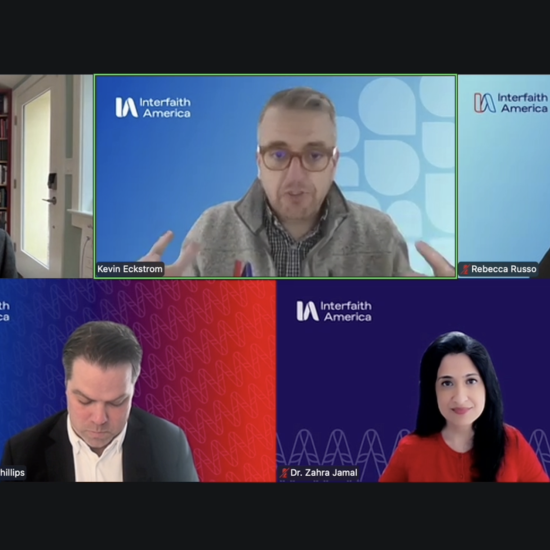
Our democracy is in trouble.
That diagnosis is quite common these days. So are the prescriptions on how to fix it. We need to elect pro-democracy candidates. They need to pass new laws. The threat requires major reforms of the institutions that structure our common life.
But what if all of that isn’t sufficient? What if there’s a prior step that’s necessary? After all, you can’t elect the right people or build support for reform without first persuading the citizenry. Sustaining democracy is not an elite exercise. The task of preservation belongs to us all.
That’s why Christopher Beem wrote The Seven Democratic Virtues: What You Can do to Overcome Tribalism and Save Our Democracy (Penn State University Press, 2022). A political scientist with a background in religious ethics, Beem brings the best of both traditions to bear on one of the most pressing challenges of our time.
He rightly identifies that political leaders respond to incentives. The rhetoric and actions displayed by anti-democratic forces are responding to a demand. Leaders expressing authoritarian ideas and tendencies are met with applause — and even votes — from enthusiastic audiences. Democratic renewal must begin with changing the attitudes and behaviors of democratic citizens.

But before we focus too much on Beem’s prescription, let’s first look at his diagnosis of the problem. Tribalism is the major vice undermining our democracy. This natural instinct to categorize people, seek solidarity with the like-minded, and privilege members of our own group over others is not new. However, as our various tribes increasingly align into one overarching identity, then any challenge to our beliefs and values becomes a threat to our entire selves. And we react accordingly to such threats by seeking to diminish or even destroy their source.
Everyone presumes the major tribal fault line in the United States is Republican versus Democrat. Our political identities absorb and overshadow the other social aspects of our lives, transforming politics into its own religion. While that’s largely accurate, it’s an oversimplification that misses the illumination provided by additional nuance. Beem claims these partisan categories are shortcuts for expressing attitudes towards racial, economic, and other cultural changes that have altered and defined post-World War II America.
“Our society’s tribal alignment, our current division into us and them, turns predominantly on whether you regard those changes as generally good or generally bad,” he wrote. “All the vicious effects associated with tribalism become stronger the more one identifies with the tribe. When all of one’s tribes coalesce into a single identity, however, the effect is even more powerful.”
Countering these communal patterns can feel impossible. The hard-wiring of our biology and elements of our environment (like cable news) exacerbate our tribal instincts. Overcoming this vice requires rediscovering the idea of virtue. We need to intentionally adopt practices that enhance our lives in the long run even if they require sacrifices in the short run. And we need to collectively agree about the value of these practices, expect ourselves and others to practice them, and hold each other accountable when we don’t.
Beem outlines seven of these virtues, offering historical reflection and contextualizing them within the present. For example, democracy requires the practice of humility. While our convictions motivate us, we should hold them gently enough that we’re open to changing our minds. As democratic citizens, we must listen to new arguments and revise our positions when evidence requires. Simply put, we must always remember that we might be wrong.
Yet, this is not easy because we don’t process information in a neutral fashion. Highlighting this propensity for in-group bias, Beem explained that “we more readily recall and give more weight to information that supports our side, and we find reasons to discount and even ‘forget’ information that supports the other side. And we do all this unconsciously and all in ways that favor us over them.”
Once we recognize that this distorted thinking is our natural state of affairs, humility becomes a necessity. Knowing this truth about ourselves demands that we guard against overzealously defending our positions and devote greater attention to understanding arguments that counter our beliefs.

Voters mark their ballots at the Lawrenceville Road United Methodist Church in Tucker, Georgia, during the U.S. Senate runoff election on Jan. 5, 2021. (Ben Gray/Associated Press)
While Beem persuasively builds his case on the foundation of social science research, there’s an obvious corollary to Christian understandings of original sin. The scriptural affirmations that “all have sinned and fall short of the glory of God” (Romans 3:23) and that in this world “we see only a reflection” of true reality (1 Corinthians 13:12) lead to a similar conclusion about the importance of humility in our lives.
That’s the beauty of Beem’s book. In calling attention to practices that can bolster our fragile democracy, he writes in ways that appeal to broadly secular audiences but also deeply resonate with Christians questioning how the basic tenets of their faith are relevant to the political turbulence of the present. Few authors can convincingly weave together Joseph Nye and Reinhold Niebuhr. Beem impressively puts ancient religious and democratic traditions in conversation with modern social science to address our lingering democratic crisis.
Beem penned this book for those who “take great pride in American democracy” and “earnestly want to see it endure.” He wrote with intellectual urgency, calling his readers to adopt virtuous practices for democracy’s defense. My own hope is that individual Christians and pastors who read this book will not only heed its advice but find ways to share it with others and study the volume in small groups, book clubs, and Sunday school classes. With our democratic future at stake, The Seven Democratic Virtues deserves a wide hearing.
That’s why we’re giving away a copy autographed by Beem to a paid subscriber of A Public Witness. We’ll select that winner by November’s end. So if you’re not already a paid subscriber, upgrade today for your chance to receive a signed copy of the book.
Additionally, you can also hear more from Beem on a recent episode of our Dangerous Dogma podcast, where he talked with Brian Kaylor about The Seven Democratic Virtues and more.
And if you don’t win the signed copy, you could always buy yourself an early Christmas present.
As a public witness,
Beau Underwood






